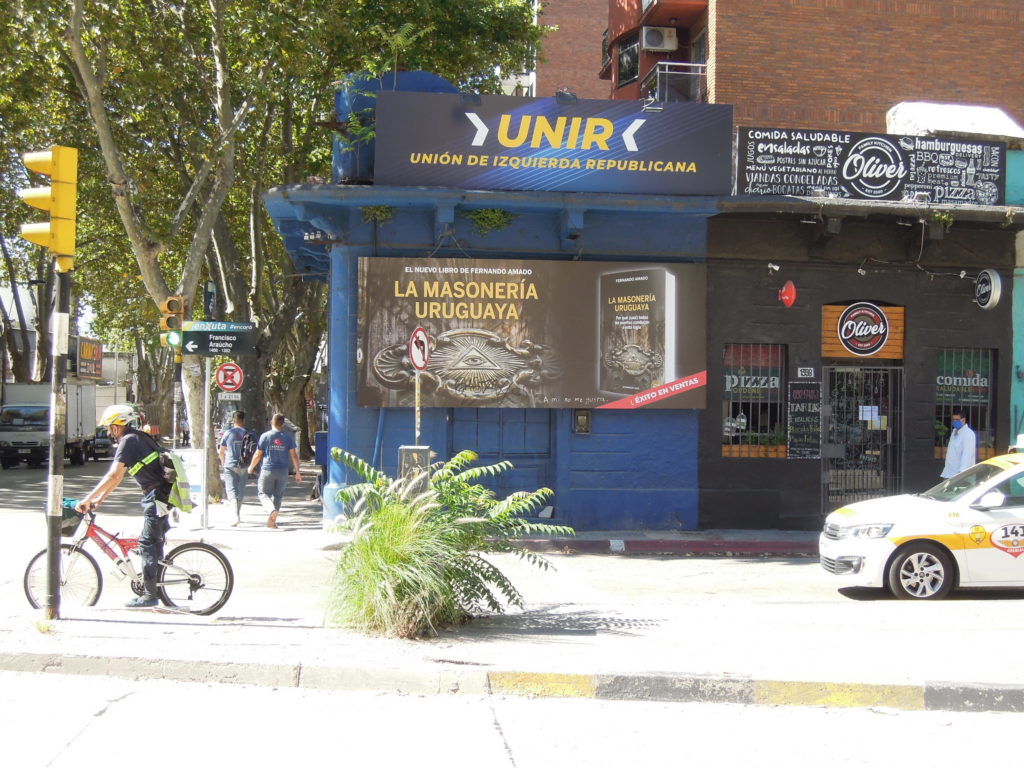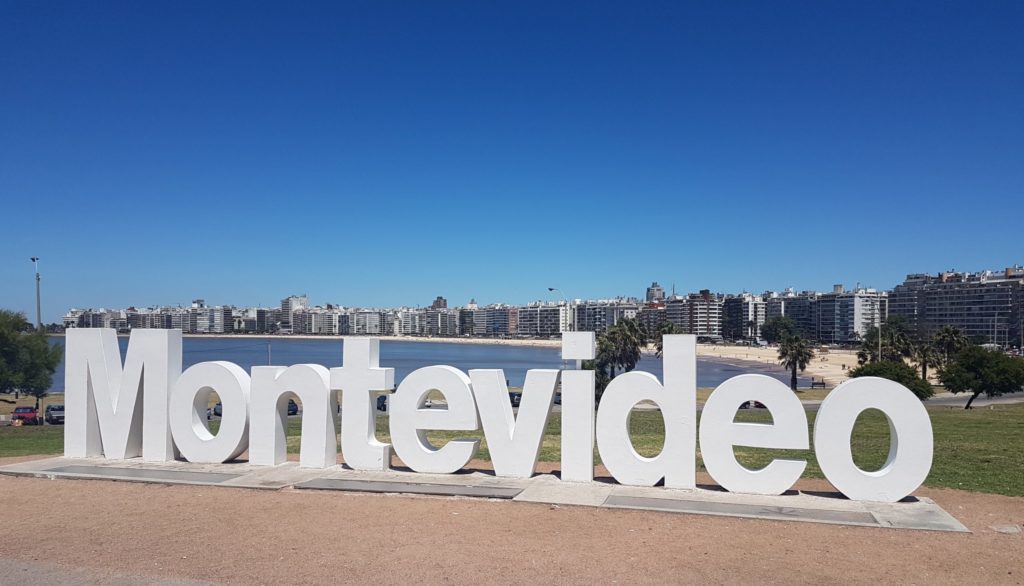Survive. The Real Academia defines this verb as "to live with scarce means or in adverse conditions"."We must survive!"Benedict XVI encouraged me that unforgettable morning in 2011, when he learned that I was coming from Uruguay, "a secular country!"he exclaimed.
The laws of separation of Church and State, in 1918, and of religious holidays, a year later, mark the culminating moments of the secularizing effort of José Batlle y Ordóñez, president on two occasions (1903 to 1907 and 1911 to 1915). In 1906 crucifixes had been removed from hospitals. In 1907 the law of divorce by mutual consent was approved.
In 1909 all kinds of religious instruction in public schools was suppressed. In 1913, divorce was legalized by the sole will of the woman... And so on and so forth. From the newspaper The Dayfounded by him in 1867, Batlle y Ordóñez preached fervently for religion to be relegated exclusively to the private sphere and for secularism to become the new civic religion. (Anticlericalism led the deviants of Batlle y Ordóñez to become the new civic religion. The Day to write god with a small letter, to refer to Pius XII as "Mr. Pacelli", to not give the news of the death of Paul VI... It ceased publication in 1993).
At the antipodes of Freemasonry
There is no evidence that Batlle y Ordóñez was a Mason, but there is evidence that many of his closest collaborators, members of the Colorado Party, which governed the country for 93 years (1865 to 1959) belonged to the Grand Lodge of Freemasonry of Uruguay, founded in 1856. In his web page, the current Grand Master, José Gartchitorena, explains the ideology of the institution:
"Through the motto Liberty, Equality, Fraternity, Freemasonry takes an active position against the oppression of the human being in every field; it rejects all sectarianism and the imposition of all dogma that limits the free expression of thought. [It is necessary to work for free, tolerant societies that ensure rights based on the fulfillment of duties and that guarantee the freedom of conscience of individuals, claiming and promoting the rule of law, secularism and ethics, both public and private, that watch over the general interest". In the "Frequently Asked Questions" it is also explained that "Freemasonry is an initiatory, universal, humanist and cultural institution... [...] Dogma, as revealed truth or undeniable principle, is at the antipodes of Freemasonry, which recognizes no other limit than reason to access knowledge"....
Secularist persecution
To survive, he said, is to live with scarce means or in adverse conditions. Mariano Soler, first archbishop of Montevideo, knew how to do it in the best way. He occupied this see from 1897 until his death in 1908, and had to face the anti-Church fury of Batlle y Ordóñez and his Colorado Party.
Soler was a champion of the faith. By means of pastoral letters, pamphlets, books, conferences and different press initiatives, he succeeded in doctrinally equipping his flock. He formed the laity well, brought to Uruguay many congregations dedicated to teaching, created a Catholic conscience rooted in faith and fidelity to the Pope. When he died, the work he had begun continued in the so-called "Catholic cause", that is, in the efforts of the laity, accompanied by well-prepared priests, to resist the anticlerical onslaught that, in various ways, continued to fight against the Church.
I studied in Montevideo, in a school run by the Marist Brothers. As a child, we had to learn a Hymn to Artigas -prócer of independence- that we used to sing during national holidays without realizing its blasphemous content: "The Padrenuestro Artigas, Lord of our land, who like a sun carried freedom in pursuit. Today he is for the peoples the verb of glory, for history a genius, for the Homeland a God...". The Marist Brothers were surely aware that such a hymn was an absurdity, but it was necessary to obey the official teaching body....
I also remember that there was a government provision that reduced bus fares only for schoolchildren in public institutions, not private ones. Such discriminatory measure provoked strong protests and, finally, we were granted the "school ticket" to the "private" ones, as long as we wore the blue ribbon of the public school on top of our white smock...
The good fruits of persecution
Jesus Christ himself announced that persecution would be a characteristic of his Church: "If they persecuted me, they will persecute you" (Jn 15:20). This is what secularism has been doing since its birth: in many ways, yesterday and today, with greater or lesser virulence, in the open or cynically.
The Church in Uruguay responded to the attacks by forming its faithful, teaching them to pray, with a well-celebrated liturgy and, on occasion, with public demonstrations of faith. How could we fail to remember the annual Corpus Christi procession, in which the students of all Catholic schools took part, drawing crowds and undoubtedly strengthening the faith of the faithful?
In the decades of the forties and fifties, priestly vocations abounded, both for the secular and religious clergy. I well remember the inauguration, in 1961, of the building of the huge new Interdiocesan Seminary, whose construction was made possible with the collaboration of all Catholics. (It served until 1968; the post-conciliar winds advised that seminarians live in small communities. The remarkable building was sold to the Uruguayan Army and today it houses the Military School, where future officers study).
In difficult times it is necessary to fight with all weapons, without giving up. In 1952, a Salesian, Father Eduardo Pavanetti, published the book El laicismo superado, en su historia y en sus dogmas. It was a serious, documented study, which helped not a little in the doctrinal formation on the real reality, so to speak, of what secularism is and contributed to awaken energies that were muted.


In 1973 a big wound was opened in the Uruguayan coexistence: in order to put an end to the disturbance of public order caused by the urban guerrilla of the Tupamaros, the Armed Forces dissolved the parliament. The government, called "civic-military" by some and "military dictatorship" by others, lasted until 1985, when Julio María Sanguinetti, of the Colorado Party, was democratically elected president of the republic.
The anticlericalism and pure secularism of Batlle y Ordóñez was already a thing of the past. To President Sanguinetti, an educated man, who has always declared that he is agnostic and does not belong to Freemasonry, we owe the law that has allowed the creation of private universities (until then only the State University of the Republic was authorized, secular and free), such as the Catholic University of Uruguay, directed by the Society of Jesus; the University of Montevideo, corporate work of the Opus Dei prelature; the ORT University, related to the Jewish community; the University of Business, promoted by the Freemasonry of Uruguay...
When the Pope visited us
Likewise, it was during Sanguinetti's presidency when an event took place that would mark a milestone in the history of the secularization of Uruguay: for the first time (and there was a second one) Pope Saint John Paul II visited us and without intending to, naturally, with his visit he provoked a tremor of capital scale.
Church and State have been separated since 1919, but the parliament unanimously approved the Pope's visit. The State does not help the Church in any way, but the preparation of John Paul II's visit was a permanent "what else do they need?", so that everything would be perfect, as it should be, and it was.
The Pope was in Uruguay for only a few hours: he arrived at 6 p.m. on March 31, 1987, celebrated Mass before 300,000 happy people the next morning, and by 1 p.m. he was flying to Chile: barely 19 hours that, a few weeks later, provoked some truly historic parliamentary discussions.
The Cross, nothing less than the Cross was the object of those sessions: Senator Gonzalo Aguirre, of the National Party (one of the two traditional parties, together with the Colorado), had presented a bill so that, where the Mass presided by the Pope had taken place, the enormous Cross that presided over it would remain permanently. I am not exaggerating when I speak of "trembling", since it was the first and only time that I saw published in the press a loose leaflet of the Grand Freemasonry of Uruguay, which urged with all its might "that the cross erected on the occasion of the visit of the Head of the Vatican State be removed from its place"....
The Diary of Sessions of the Senate has 59 pages, where the interventions of the senators in favor and against the proposal, approved after a debate of many hours, are recorded. And what Senator Jorge Batlle Ibáñez, of the Colorado Party, grandnephew of José Batlle y Ordóñez and son of Luis Batlle Berres, who was also President of the Republic (1947-1951), said is of particular interest.
Jorge Batlle, an agnostic, unbaptized, who would also occupy the presidency (2000-2005), nevertheless gave a lesson on how to understand today the secularity of the State. Times have changed; it is not the same to survive today as it was a century ago. We shall see.
Bishop emeritus of Minas (Uruguay).













